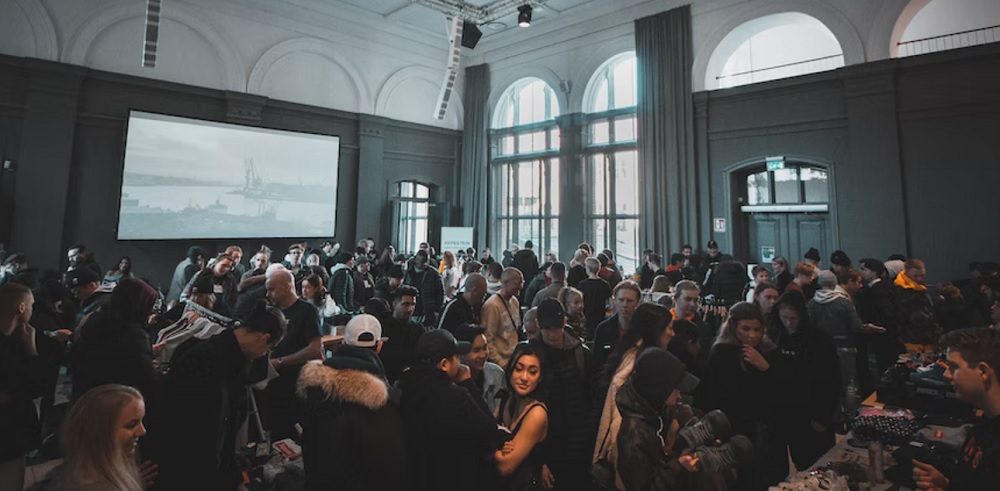People of colour will be familiar with the question that was all over social media last week. Ngozi Fulani, CEO and Co-Founder at Sistah Space, was repeatedly asked ‘Where are you really from?’ by Lady Susan Hussey when she attended an event at Buckingham Palace. The palace described this as “unacceptable and deeply regrettable”. Lady Hussey apologised and resigned.
As a woman of colour I’ve been asked this question many times.I find myself pre-empting it by telling people about my Chinese, mixed race heritage. I would rather give my answer ahead of being asked. The question makes me really uncomfortable.
This question is never an innocent one. It doesn’t come from a place of curiosity. It is asked to highlight differences, not common ground. And when you are asked repeatedly, as Fulani was,‘Where are you really from?’ is a Russian doll of even more toxic questions. You may as well ask ‘Why are you here?’ and ‘What right do you have to be in this room?’
As a woman of colour who speaks at and attends many events for work so many of my experiences have been positive. Yet racism is, as Nazir Afzal tweeted, never far away. It will always find you, wherever you are. It doesn’t matter what your job title is, or how many awards you win. Someone who asks ‘Where are you really from?’ thinks they know your truth when it is not their story to tell.
The other reason I struggle with this question is that I don’t know how to answer it. Do I tell them about my Chinese mother, who was a child refugee? Do they want to know about my father, who was English? Should I tell them about my children, who have Chinese, Indian, Scottish and English heritage?
We are all a messy bundle of many stories. That is why ‘where are you really from?’ is a disingenuous question. It assumes that origins and identity can be boxed up neatly. That is never the case for anyone, regardless of background. People are so much more interesting because of this complexity.
Racism can show up anywhere, sometimes when you least expect it. Any event is a collision of strangers, and it is in some of those unguarded interactions between them that we see others as they really are.
I have had many positive experiences at both work and personal events over the years. Yet the ones which stand out are those where I experienced racism. There was the birthday party I took my mixed race daughter to when she was small. We were the only people of colour there. As the long hot summer afternoon wore on, I became increasingly uncomfortable. The other mothers barely spoke to me. Finally someone asked me a question: ‘‘Where is your daughter from?’ She then asked me more questions and it became clear that my child’s difference, and mine, were being highlighted. I looked over at my little daughter who was playing happily in the garden. I wanted to scoop her up and take her home.
I have also had experiences at work events where I have been treated differently. I arrived at a conference I was speaking at a few years ago to find that the programme was running late. The white, male CEO who was on after me told me that I needed to cut my presentation short so that his session was not affected.
Then there was the conference organiser who asked me to speak at their event and then clearly forgot, whilst booking in a lot of white speakers. When I challenged them about this they were quick to defend their track record of ‘co-ordinating diversity initiatives.’
These are just two examples. And that’s why ‘where are you really from?’ is just one aspect of the racism that many people of colour face when they are simply trying to do their job at events. These experiences cause harm.. When it happens, I am left with shame. I fear that I don’t belong. I am unwelcome, and unwanted. Whatever I achieve will never be enough, if the first thing people see is my difference. That is the brutal truth of racism. And it feels like the loneliest place on earth.
I heard Ngozi Fulani on the Today programme last week. I could hear the frustration in her voice when she explained that the Buckingham Palace story should not take the focus away from the issue of violence against women and girls, the cause she was there to represent. For this is the human cost of racism. Not only does it cause harm, but it is a distraction. As Toni Morrison said, it keeps you from doing your work. It wastes your time and it takes its toll on mental health.
Why do people waste their time, and ours, by asking where we are really from? Why can’t we focus on what we can achieve together, rather than putting the spotlight on what sets us apart?

